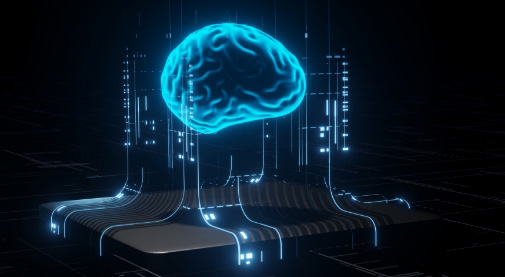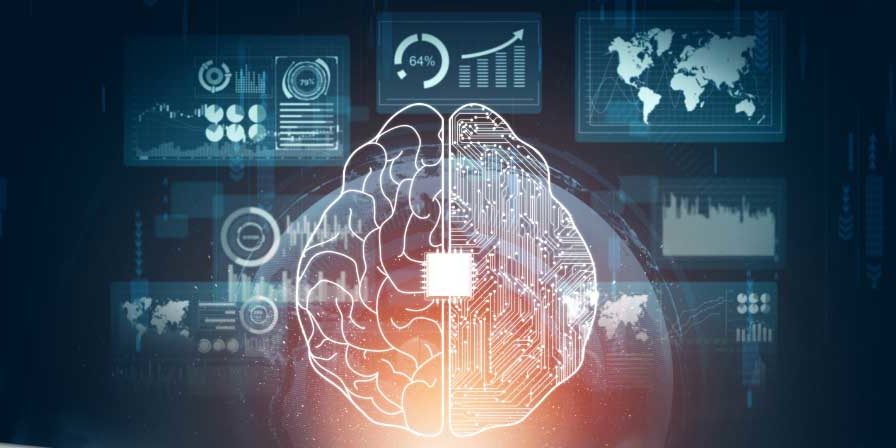As per the General Manager of IBM Watson David Kenny– the most advanced cognitive computing framework, “AI can just be as intelligent as the people practicing it.” The similarity is not valid for the latest cognitive change. Cognitive computing means practices combining artificial intelligence, neural networks, machine learning, natural language processing, sentiment analysis, and contextual information to address day-to-day difficulties just like humans. IBM describes cognitive computing as an advanced system that gets at order, designs with confidence, and communicates with humans naturally.
Cognitive Computing Vs. Artificial Intelligence
As artificial intelligence’s primary method is to perform the best algorithm to address the case difficulty, cognitive computing allows one step further and tries to simulate human intelligence and data by examining various parts. Cognitive computing is an entirely different idea compared to artificial intelligence.
Cognitive computing studies and follows the human thought method
Unlike artificial intelligence systemsthat look after a given query, it follows by considering cognitive computing models and proposes that humans take effect based on their knowledge. In Artificial Intelligence, the system takes complete power over a method and takes steps to make a task or bypass a situation utilizing a predefined algorithm.
In contrast, cognitive computing is a complex area where it works as an assistant rather than making the task. Therefore, the cognitive computing machine learning system allows people to make quicker and more reliable data analyses without bothering about incorrect decisions.
Cognitive computing does not force individuals out of the image
As explained earlier, the primary purpose of cognitive computing is to help humans in decision-making. This guarantees that humans have higher grade efficiency in analysis, proving that everything is under their power. To show, let us take the case of artificial intelligence in the healthcare system. The Artificial Intelligence-supported practice makes all decisions about medication without consulting the individual doctor. Cognitive computing combines human diagnosis with its data and analysis, enhancing decisions’ status and joining a human touch to multiple processes.
Also Read:Healthcare Well-Spun with AI & ML
Going cognitive: The benefits of cognitive computing

In the process automation field, the advanced computing system is set to revolutionize the current and legacy systems. As per Gartner, cognitive computing has disrupted other technologies’ digital area in the last 20 years. By examining and treating large volumes of volumetric data, cognitive computing benefits practice the important real-life system’s computing system. Cognitive computing has many benefits, including:
-
Reliable data analysis
Cognitive systems are most useful at collecting information, maintaining, and cross-referencing to analyze a situation effectively. Supported by the data-based treatment. Somewhat of replacing physicians, cognitive computing practices robotic process automation to stimulate data analysis.
-
Leaner and more efficient business processes
Cognitive computing can examine developing models, recognize business opportunities, and control complicated process-centric problems in real-time. By analyzing vast amounts of data, cognitive computing systems like Watson explain methods, decrease risk, and axis to modify improving features. While it provides businesses to develop the proper reply to uncontrollable parts, at the same time, it serves to build lean business methods.
-
Improved Customer Communication
Cognitive Service can be practiced to enhance customer communications by executing robotic process automation. Robots can complete contextual data to customers without requiring to communicate with other staff. Recognizing cognitive computing makes it likely to give only necessary, relevant, and helpful information to customers; it also enhances the customer experience to be happy and more interested.
Barriers with Cognitive Computing
Each modern technology meets some difficulties in its lifecycle. Despite the capacity to improve lives due to cognitive computing’s natural resources, humans’ innovations are forced by changing anxiety. People come up with many cognitive computing problems, sitting essential difficulties in the process of adoption as follows:
-
Security
When digital devices manage essential knowledge, the security question automatically comes into the thought. With the capability to handle and understand large amounts of data, cognitive computing is critical in data security and encryption.
As more and more connected devices come into the picture, cognitive computing requires a security break by producing a full-proof security plan, including discovering unusual activity to improve data integrity.
-
Adoption
One of the most significant barriers to progress for any new technology is offering. For cognitive computing to be prosperous, it is necessary to produce a long-term vision of how new technology can enhance business methods.
Wrapping up
Being part of the digital development cycle, cognitive services and technology begin with knowing manual methods that can be automated using technology. Many companies have now established cognitive technology, fed by many real-time digital businesses globally.
With each minute invented, more data is examined to obtain insights into past events and enhance current and planned processes. Not only does Cognitive Tech help in early analyzes, but it also assists us to more precisely estimate future results for future attendance review.
Being such a solid and flexible technology, the B2B and B2B divisions’ landscapes and paths are infinite. Cognitive computing’s potential and advantages are now being leveraged in the business and health care domains with IBM Watson. In the future, it is believed that such technology will allow people to become more effective than ever, hand over normal analyzes, and concentrate on creative work.



